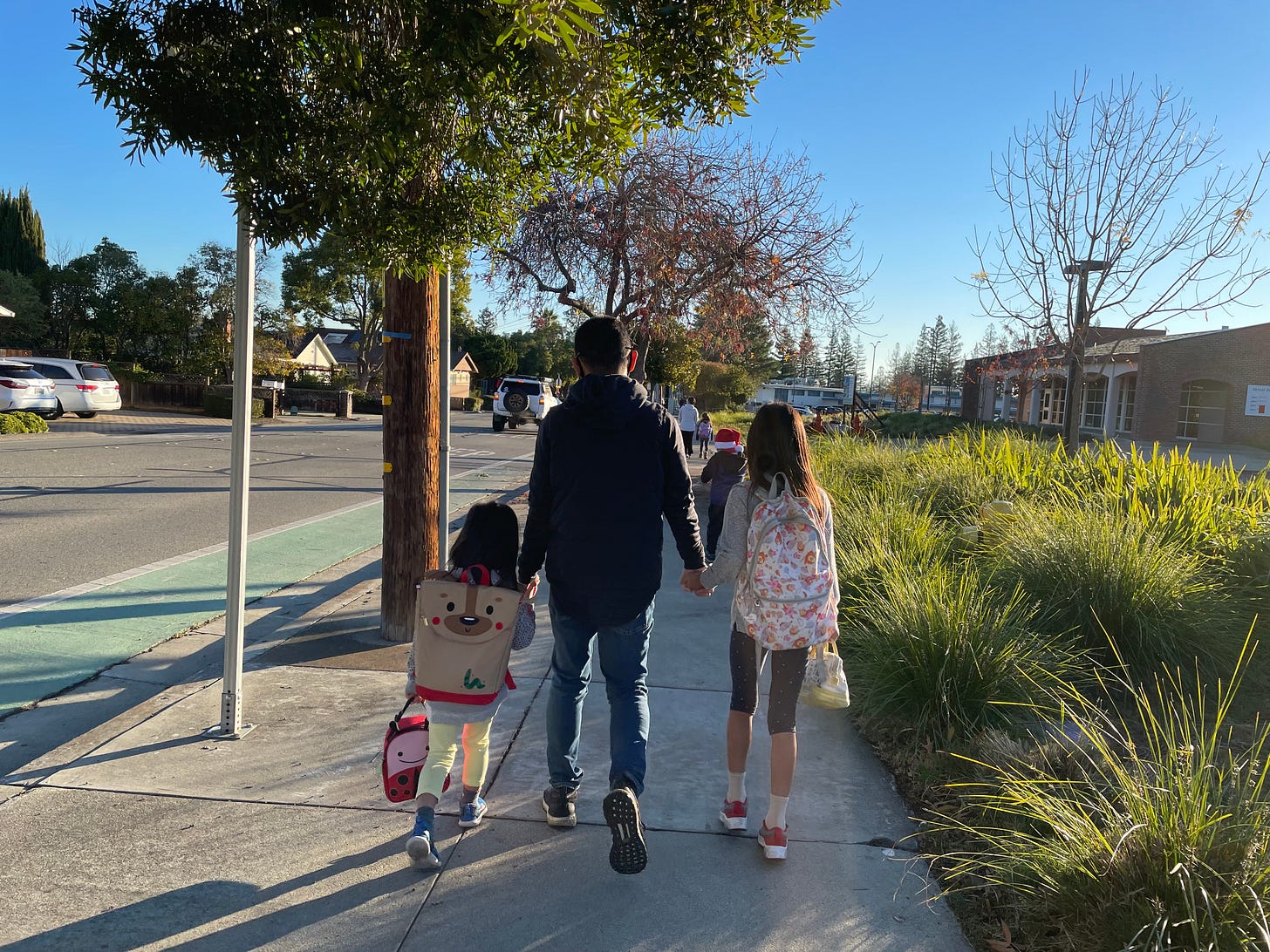Have Fun!
But what is fun?
I love walking my daughters to school—especially during the year when both of them attended the same elementary school. Every morning, after our short journey, I’d wave goodbye and say, “Have fun!”
But what do I really mean by that?
When we pivoted to building games, we began to explore this question seriously. We dove deep into the science and philosophy behind joy and engagement. Drawing from Self-Determination Theory (by Edward Deci and Richard Ryan), Daniel Pink’s Drive, and Mihaly Csikszentmihalyi’s Flow, we began shaping our own perspective on what makes fun truly meaningful.
For us, fun is built on three pillars: autonomy, mastery, and connection.
Autonomy: The Freedom to Choose
Fun thrives when people have the power to make their own choices. Whether it’s picking a game, setting their own pace, or discovering unexpected paths, autonomy gives players ownership over their experience.
We were surprised when a simple game like Mirrorama became our most popular title—and has stayed #1 since launch. What it offered was space: for expression, for imagination, for choice. That kind of creative freedom is powerful. Not all of our games deliver on this yet, but we’re working on it. Autonomy is foundational.
Mastery: The Joy of Progress
There’s a unique joy that comes from improving at something. Mastery is about the thrill of progress, the satisfaction of overcoming challenges, and the pride that comes with seeing growth—especially when it’s hard-earned.
Games like Starri and Teenage Mutant Ninja Turtles have high skill ceilings, and that’s by design. We often say: challenges are the catalyst for growth. We don’t shy away from making certain parts of our games challenging, because pushing through it is often where the deepest joy lies.
Connection: The Power of Togetherness
Fun is multiplied when it’s shared. Connection—whether with friends, family, or even strangers—turns play into something meaningful. That’s why most of our games are local multiplayer, designed for laughter, competition, and cooperation in the same room.
This year, we’re also exploring safe, secure ways to take play online.
Autonomy, mastery, and connection don’t just guide how we build games—they shape how we build our company. We want Nex to be fun to work at, because that’s the only way we’ll consistently build games that are fun to play.
We’re not there yet. But we’re committed to the path.
So, what did I mean when I told my daughters to “have fun”?
I meant: take care of yourself (autonomy), learn something new (mastery), and make some friends (connection).


